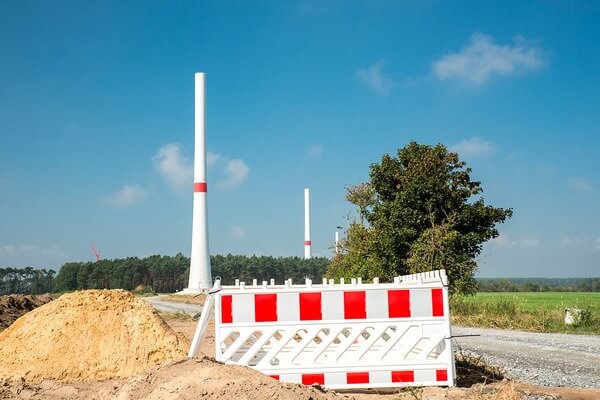News Release from windfair.net
Wind Industry Profile of
Not in my backyard!
Without electricity, life is unthinkable today, at least in Western civilizations. Even short power outages turn everything upside down. However, citizens' acceptance of living near power plants is low. That's according to a new study by University of Georgia researcher Thomas Lawrence.
Lawrence and an international team conducted surveys in the U.S., Germany and Ireland to determine people's attitudes toward power generation in close proximity to their homes. As a result, respondents in each country were asked to rate five energy sources: Wind turbines, solar technology and traditional power generation using biomass, coal or natural gas as a source of electricity.
“People in Germany and Ireland were more open to having renewable energy technologies closer to where they lived, perhaps because they have less space than in the U.S.,” said Lawrence, professor of practice in the College of Engineering. “In the U.S., I was happily surprised to see overall support for a transition of power sources - especially to solar and wind - in the electrical grid, and it was stronger than I would have guessed.”
That no one likes living near a power plant is not a phenomenon unique to renewables, however. In all three countries, respondents were overwhelmingly opposed to coal or natural gas power plants near their homes.
Acceptance is slightly higher for renewables - even closer to homes. Acceptance was particularly high in Germany: 74 percent gave their approval to solar power plants, 33 percent to wind power plants at a distance of between 0-1 kilometer.
This is a surprising result, because reality in Germany is that hardly any renewable energy power plant can be built without protests from local residents. One solution, according to general assumption, is to let communities and residents in the vicinity of new power plants share in the profits from the plants. "More participation leads to more acceptance," says Robert Brandt, managing director of the Agency for Renewable Energies (AEE).
But is that really the case? To find out how local acceptance can be increased, a new research project has therefore been launched in Germany. The Institute for Future Energy and Material Flow Systems (IZES) and the Institute for Ecological Economy Research (IÖW) are involved in ReWA (Regional Value Creation, Acceptance, Participation) with AEE.
"We hope that this often-used narrative, more participation promotes more acceptance, will stand up to scrutiny," Brandt told the Blog ErneuerbareEnergien.NRW. "After all, specific impact mechanisms of financial participation on acceptance and their dependence on local framework conditions are still insufficiently documented in a differentiated way."
So far, little is known about exactly how the processes associated with the energy transition affect society and how people perceive them. Even though various concepts for more participation are being tested in research and practice, it is still unclear which approaches work or do not work where and why.

On paper, acceptance of renewable energy power plants is high (Image: Pixabay).
The University of Georgia study, published in The Energy Journal, also tried to go deeper and looked at people's preferences in relation to various energy policy goals: economic viability, environmental sustainability, reliability of energy supply and social acceptance.
Social acceptability e.g. plays a much greater role in Ireland than in Germany or the United States. Respondents in Ireland rank social acceptability even more important than environmental sustainability or reliability of supply. They also attach more importance to these three variables than to economic viability.
German respondents, on the other hand, view national policy goals as more important than social acceptability, although they also place greater importance on environmental sustainability and security of supply than on economic viability.
"Research in this area is important for understanding socioeconomic challenges, uncovering and resolving conflicts," the German Federal Ministry of Economics confirms. After all, it is clear that for the energy transition to be successful, everyone must ultimately pull together.
- Author:
- Katrin Radtke
- Email:
- press@windfair.net
- Keywords:
- backyard, study, research, acceptance, USA, Ireland, germany, local, citizens, doorstep, University of Georgia, AEE, wind farm, wind turbine, power plant

























